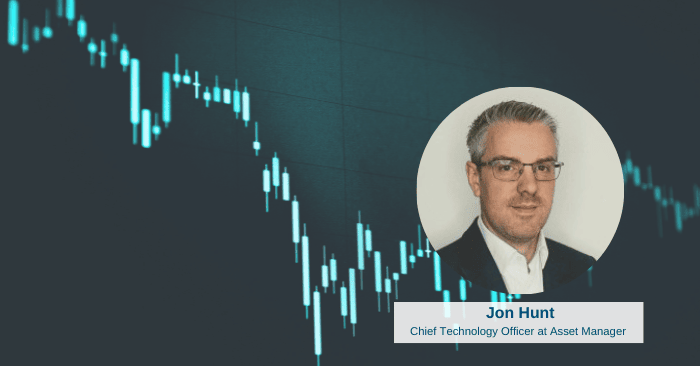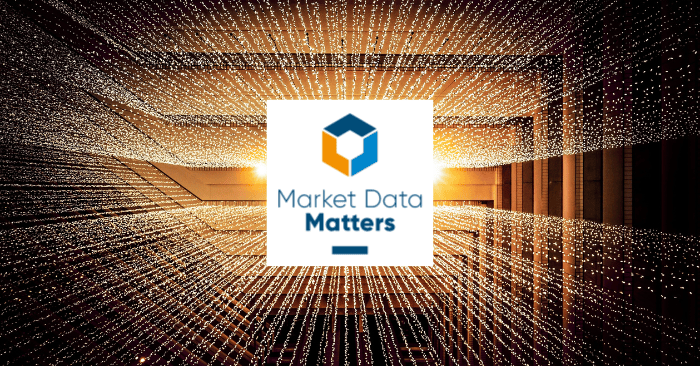So how can businesses take control of their data? How can companies track, manage and understand their reference data? And more to the point, what can organizations do to optimize their data so they can get a clear return on investment?
One business that’s been grappling with these questions is an asset management firm founded in the 1990s. Managing assets for some of the world’s largest and most sophisticated investors, the firm was pulling down tens of thousands of data points every day and seeing its data licensing bills soar. However, since adopting Xmon, it has been able to turn the tide.
This Q&A has been prepared following a recent TRG Screen webinar, where Clive Posselt from The Realization Group quizzed Jon Hunt, Chief Technology Officer at the company. They discuss why the business purchased Xmon and the benefits it has enjoyed since implementation.
Clive Posselt: Jon let’s kick off by getting your views on reference data. How important is it to actively manage reference data and how has Xmon helped you achieve benefits at your business?
Jon Hunt: We run a sensible tech stack here built around an order management system, a data warehouse and a portfolio management system. We also use one of the most sophisticated data vendors. It’s very much an enterprise solution and we had a certain amount of handholding at the start, but ultimately, we’re considered to be a sophisticated consumer of a sophisticated product.
And if you’re pulling down tens of thousands of data points per day suddenly you end up with huge data licensing bills. We tried to put all of this into Excel, but it breached the program. It was at that point we turned to TRG Screen for help.
They gave us instant transparency on where the calls were coming from and which of the three systems were making the calls. The fact is, if you don’t do it, your CFO is going to come and get you because you’ve spent hundreds of thousands of dollars on market data that you may not need.
Clive Posselt: You’ve said that you have a CFO that roams the building looking for people spending money. How important is it to actively track that spend and understand it in a granular way?
Jon Hunt: We run different portfolios here across different markets. And that’s changing all the time – we recently acquired an asset management firm and which took us until a new region. We didn’t have that on our books. So, I found myself in the position of thinking “How do I explain an increase or decrease in data licensing spend?” and “How do I measure this?”
Clive Posselt: It’s the importance of spend reduction and control, isn’t it?
Jon Hunt: Your data vendor will love you for spending lots. They don’t necessarily provide you with the tools to monitor your spend, which seems like a gap to me. Also, if you have multiple portfolios or you’ve made some kind of business change, you don’t want to hire headcount to look at this because it's expensive.
Clive Posselt: Can you expand a bit on the Xmon insights solution and how it acts as an extension of your team?
Jon Hunt: Yes. We have a smart team of business analysts here but they’re always busy. So, it’s great when we get an email from Xmon tracking our monthly data spend. But sometimes we get these magic soft consulting emails from one of our contacts TRG Screen telling us that we’re requesting data 17 different times from four different systems.
It’s very useful. Although our portfolio management vendor is incredibly nice, they might make a mistake and turn on an extra data pool that they didn’t need to or forget to turn off an old one. This tells us when that happens.
Clive Posselt: When you started using the platform how long did it take to start realizing benefits?
Jon Hunt: So, you’re probably wondering why I didn’t just buy this, sign up for a month, and then go thanks that was great I learned a lot, here’s your termination notice. But I’ve found that if you’re making any change to your business – for example, if you’re adding new markets or changing systems – it’s very sensibly priced.
It’s also keeping us in check and has saved us tens if not hundreds of thousands of dollars.
Clive Posselt: Finally, what’s the most important functionality that comes with the platform?
Jon Hunt: So, it’s probably three things. It’s the ability to tell us our spend transparently, the soft consultancy that explains how things work and the ad hoc adapters you can create off the back of it.
An expensive resource
Reference data is an expensive commodity – it accounts for 10 to 30 percent of a typical market data budget. Within multinational organizations, the figure can be even larger, with some companies allocating millions of dollars to it. On top of this, vendors have different ways of charging for the data that they provide – some have metered pay-as-you-go products, while others come with fixed deals or volume-based agreements.
With a solution like Xmon from TRG Screen users can track, manage and optimize reference data. Xmon comes with a very modern data stack that can process data in high volumes and provide analytics in real time. It allows organizations to identify whether certain calls are non-compliant or too costly. And, depending on the usage case, it can be used to potentially block non-compliant calls through a dedicated rules engine.
Lastly, Xmon can be used to generate alerts. If a consumer sends out a request that should be bound by a licensing agreement, the Xmon market data team will know about it. The team will then raise an alert, allowing the client to act immediately.
Recording panel discussion with John Hunt
Check the recording of the panel discussion below or check our blog where we summarize the webinar.
Want to learn more about Xmon?





